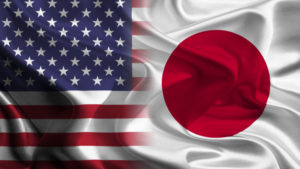
Running out of money during retirement is the greatest risk people take when they decide to stop working. The World Economic Forum has published new research that shows Americans aren’t saving enough to cover the last decade or so of their retirement. That pales in comparison to the Japanese, who fail to save enough for the last two decades of their retirement. The only problem here for Americans though is that a big portion of that savings disparity comes because Japanese people are living so much longer, not because Americans are simply saving that much more. Bloomberg’s Ben Steverman reports:
One of the toughest problems retirees face is making sure their money lasts as long as they do.
From the U.S. to Europe, Australia and Japan, retirement account balances aren’t increasing fast enough to cover rising life expectancy, the World Economic Forum warns in a report published Thursday. The result could be workers outliving their savings by as much as a decade or more.
“The size of the gap is is such that it requires action” from policymakers, employers and individuals, said report co-author Han Yik, head of institutional investors at the World Economic Forum. Unless more is done, older people will either need to get by on less or postpone retirement, he said. “You either spend less or you make more.”
In the U.S., the forum calculates that 65-year-olds have enough savings to cover just 9.7 years of retirement income. That leaves the average American man with a gap of 8.3 years. Women, who live longer, face a 10.9-year gap.
The forum assumed retirees would need enough income to cover 70 per cent of their pre-retirement pay, and didn’t include Social Security or other government welfare payments in the total.
The retirement savings gap is about 10 years for men in the U.K., Australia, Canada, and the Netherlands, the forum says. Longer-living women in those countries face an extra two to three years of financial uncertainty.
Most of the world’s retirees are doing well compared with those in Japan, where the retirement savings gap is 15 years for men and almost 20 years for women.
While Japanese workers save no less than others, they tend to invest in very safe assets that produce few gains over time, Yik said. As a result, average savings in Japan are only enough to cover 4.5 years of retirement.
Meanwhile, life expectancy at birth for Japanese women is 87.1 years — the highest in the world, according to the Organization for Economic Cooperation and Development — and 81 years for men.
It’s never too late to start saving though. While the power of compounding rewards those who save early and save often, tightening your belt in your later working years and putting that extra money into retirement can mean a lot. Remember if you have a 30 year retirement, the dollar you save on your last day of work will have 30 years to compound. Don’t end up becoming one of the “retirees” who keeps working.
Originally posted on Your Survival Guy.



